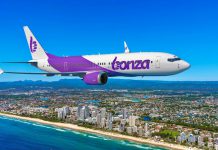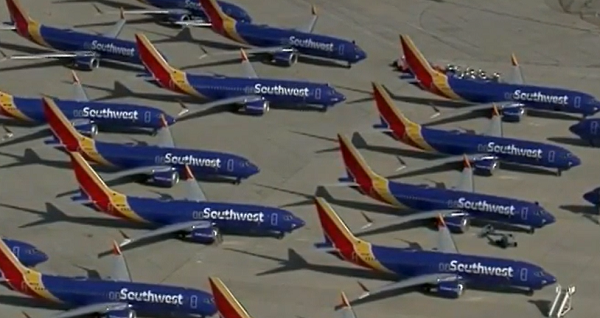Boeing has appointed a 34-year company veteran to head a new organization designed to streamline safety responsibilities across the company.
Former Boeing Commercial Airplanes safety security and compliance vice president Beth Pasztor will head a new unit that aims unify safety-related responsibilities now managed by teams across several business and operating units.
The Product Safety and Services organization will be responsible for reviewing all aspects of product safety, including investigating cases of undue pressure and anonymous concerns raised by employees.
Pasztor will also oversee the company’s accident investigation team and safety review boards as well as the system that allows Boeing staff to represent the US Federal Aviation Administration in airplane certification activities.
Pasztor and other engineers throughout the company will report to Boeing chief engineer Greg Hyslop.
The new appointment was one of several actions announced Monday by Boeing chief executive Dennis Muilenburg in response to a five-month review by a special board committee in the wake of two fatal Boeing 737 MAX crashes.
READ: NTSB says MAX certification underestimated pilot experience.
The crashes led to the global MAX fleet being grounded and sparked a review of controversial flight control software known as MCAS.
Boeing is finalizing a new version of the flight control software aimed at proving to the FAA the grounded aircraft should be re-certified as safe to fly.
The manufacturer is still optimistic this will happen early in the fourth quarter, although the optimism is not shared by a number of its customers
It also needs to convince the flying public, lawmakers and others that it has addressed any problems with its safety culture and processes.
“My team and I embrace our board’s recommendations and are taking immediate steps to implement them across the company in partnership with our people, while continuing and expanding our ongoing efforts to strengthen safety across Boeing and the broader aerospace industry,’’ Muilenburg said in a statement.
The Boeing chief told Bloomberg News he had considered external candidates to head the new team before deciding Pasztor’s deep knowledge of Boeing would give her a running start.
“She, from a technical qualification standpoint, is the best,’’ he said.
Other responses to the committee recommendations by the company include the establishment of a design requirements program “to strengthen a culture of continuous improvement, learning and innovation”
The company is also enhancing its Continued Operation Safety Program to raise “the visibility and transparency of all safety and potential safety reports” as well as partnering with customers to ensure flight deck designs continue to anticipate the needs of future pilots.
In addition to the board’s recommendations, Muilenburg also announced additional steps to strengthen how it manages safety across the company and its suppliers.
These included an anonymous reporting system from Boeing Commercial Airplanes that had been expanded across the company and was encouraging employees to bring forward potential safety issues to be reviewed by the Product and Services Safety organization.
Safety review boards had also been expanded and are now led by senior executives including the chief engineer and business unit chiefs.
There were also investments in enhanced flight simulation and computing capabilities that had boosted the company’s testing capabilities.
The company gave one example where software engineers over the past several weeks run 390,000 flight hours on the 737 MAX—the equivalent of flying 45 years.
Advanced research and development efforts in future flight decks were also underway and were incorporating leading-edge work in human factors and design.
“In addition to our focus on a common safety management system, we’re creating new leadership positions with the authority, accountability and transparency needed to make measurable progress; addressing the growing need for talent, pilot and maintenance technician training, and STEM education; as well as investing in areas such as product design, future flight decks, infrastructure, regulation and new technologies,’’ Muilenburg said.
























